He is best known for his recent breakout sci-fi roles – from the fierce fighter Doctor M’Benga in Star Trek: Strange New Worlds to Jamis – the Freman and best friend to the protagonist Paul – in Dune Parts One and Two.
But Babs Olusanmokun has been acting for two decades. A Nigerian-American who speaks Portuguese, French, and Yoruba, he has had parts in everything from Veronica Mars to Black Mirror to the recent Book of Clarence.

Now a bonafide blockbuster star, Olusanmokun is gracing the biggest screens again in April 19th’s much-anticipated Guy Ritchie-Jerry Bruckheimer action comedy The Ministry of Ungentlemanly Warfare, cementing his status as Hollywood’s new rising star.
Inspired by recently declassified WWII documents, the film tells the story of a covert band of unorthodox warriors who dressed in enemy uniforms and broke all the rules – the Brit’s first guerilla special-ops team.
Olusanmokun takes on the character of Agent Richard Heron, who is operating undercover on the island of Fernando Po, a strategically important island off of West Africa. Heron has to navigate the murky waters of espionage while managing a casino bar and overseeing illegal exports shipped to the nazis. Babs is a steely, commanding presence in the role, and highly proficient in combat.
The Watercooler had the opportunity to sit down with Olusanmokun to discuss his new film, his Jui Jitsu skills, and the wildly contrasting worlds he has been immersed in.
Felipe Patteson: You jumped from the far-off future of Dune to the past in The Ministry of Ungentlemanly Warfare, where you play an agent who infiltrates the world of high-ranking nazis. What was it like to jump between these two worlds?
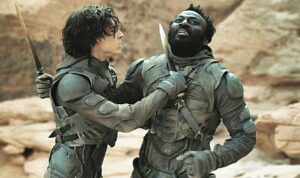
Babs Olusanmokun: It was fantastic to play and work in these bigger-than-life theaters. With Dune, you have a world that’s been created on paper, and then somebody brings it to the big screen with fantastic images and landscapes. It harkens back to being a child and watching this amazing thing that you can’t even wrap your head around – how these things were figured out.
You don’t know what a production designer, art director, or costume designer truly means until you are a part of those types of projects. So to be playing in that kind of theater and that kind of landscape was fantastic. Then jumping from Dune to Ungentlemanly Warfare, all the World War II movies that you grow up with and the classic films that have been made from that era, from Casablanca to The Dirty Dozen, to be called upon to play in that [historic] sandbox. It’s just amazing. That’s why I am an actor.
Felipe Patterson: The Ministry of Ungentlemanly Warfare is based on the previously untold story of an unconventional special forces team formed by Winston Churchill during WWII. Yet unlike some of the other characters in the film, your character – Agent Heron – was fictionalized. How do you prepare for a fictional role inside of an actual historical event?
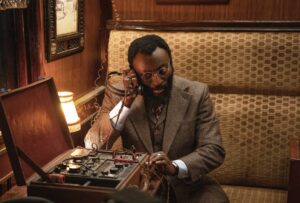
Babs Olusanmokun: It was really just about looking at the history of the time, knowing that even in World War I, there was a group called the British West Indies Regiment that fought on behalf of the British Empire. Since it was taking place in World War I, my imagination told me certain things should have been happening, could have been happening, and probably were happening in World War II. It wasn’t much of a leap of faith in my approach to the role.
With public education and awareness, it’s really like growing up. If you’re not fully informed or not taught enough history, you’ll see a Black cowboy and think, “That’s a cowboy!” because you’re so used to watching Westerns. But when you grow up properly, become more educated, and really see the information, the reality is that some of the best cowboys in the American West were black men. Some of the greatest lawmen were black men. So when you know those things, you don’t get your heart in a flutter because you are more informed about history.
For me, Richard Heron was already within me. It was about just taking my organic, natural self to that time period and trying to adapt the way I speak, carry myself, and dress to fit that era. I thought about the men that came after that period, such as Sidney Poitier, the great Harry Belafonte, and before them, Mr. Paul Robeson, and how he carried himself. I thought about the language, the joy of language, and improving language. These were all things that I took into account and played with.
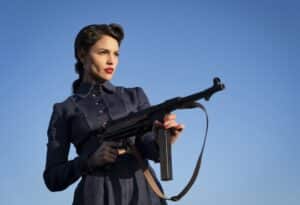
Felipe Patterson: How would you characterize the partnership between your character and fellow agent Majorie Stewart (Eiza Gonzales)?
Babs Olusanmokun: She is a real wild part of the unit. As Agent Heron, I had to take her in and show her the lay of the land on this island, where I had been essentially developing a business because I was already keeping my eye on the nazis for the unit. So, I’d been working undercover for quite some time before her. She was the last piece we needed to gain an advantage on this particular nazi group.
Felipe Patterson: You’re a black belt and former jiu-jitsu champion. Did you borrow any principles or strategies from Jui-Jitsu for the Ungentlemanly Warfare role?
Babs Olusanmokun: You know, not every jiu-jitsu black belt is the same, so to speak. So what people take out of it can be different, right? For example, I can use my knife to cut an apple, and some other person can use their knife to want to hurt somebody else. For me, jiu-jitsu gives me calmness, awareness, and confidence, but not arrogance. Jiu-jitsu gives me balance.
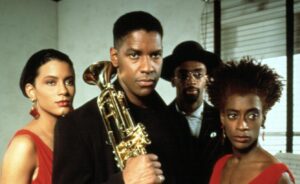 Felipe Patterson: “Balance” defines your career and the range of projects. Flashing back – what were the movies you loved growing up?
Felipe Patterson: “Balance” defines your career and the range of projects. Flashing back – what were the movies you loved growing up?
Babs Olusanmokun: Indiana Jones, Do the Right Thing, Glory, Mo’ Better Blues. I enjoyed watching everything from Spike Lee to George Lucas movies. I like big budget films, but I also like more intimate dramas, like Dead Poets Society.
Be sure to look for Babs as Agent Heron in The Ministry of Ungentlemanly Warfare – premiering in theaters everywhere on Friday, April 19th.


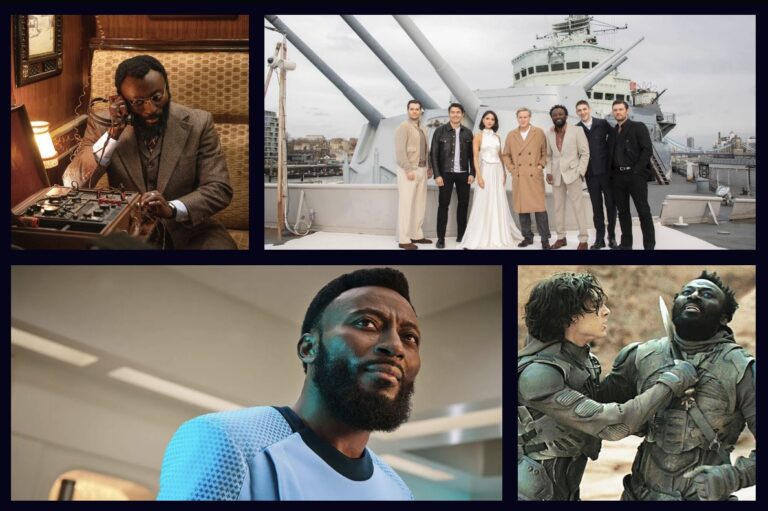
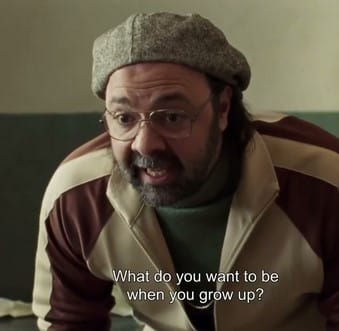
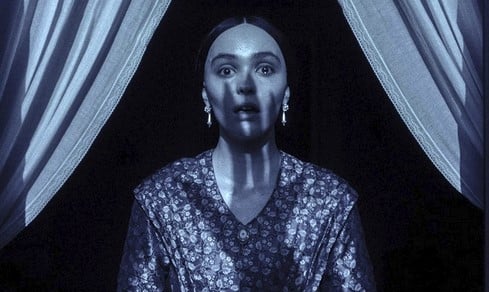
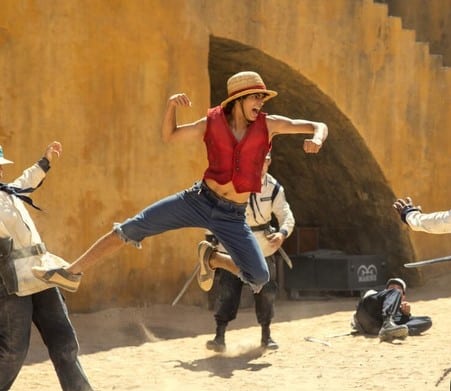
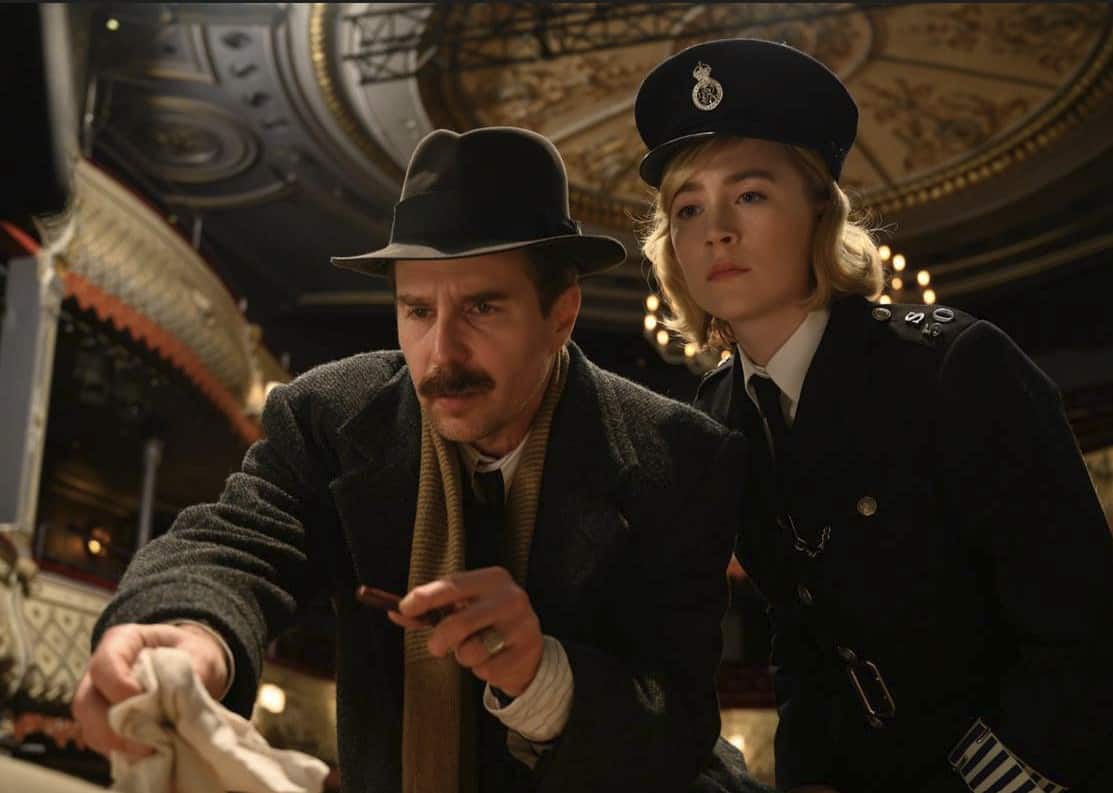
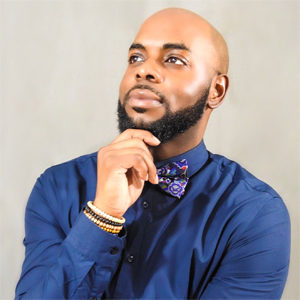
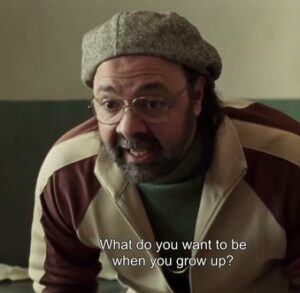
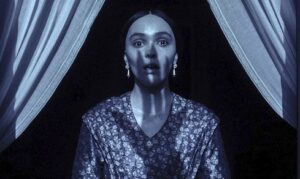
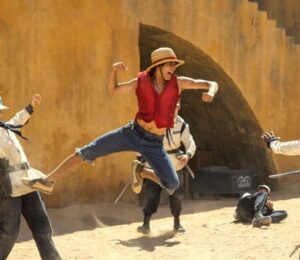
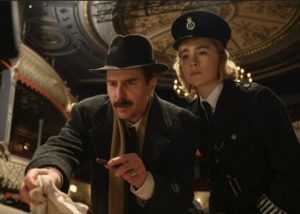
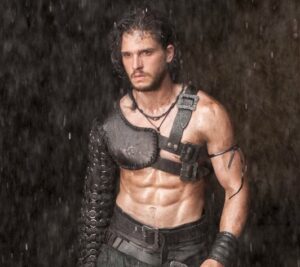

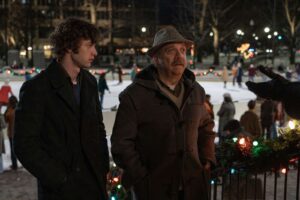

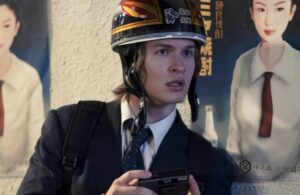
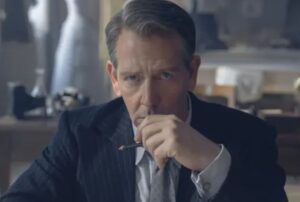
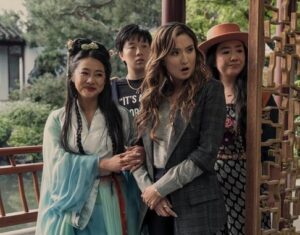
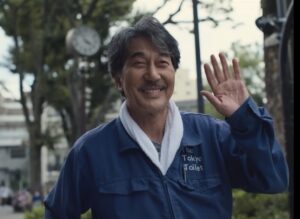

Start a watercooler conversation: